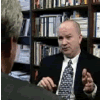
SAN FRANCISCO (KGO) — Over the weekend President Barack Obama’s staff made it clear he is going to sign the omnibus spending bill. In doing so, Obama is going back on his campaign promise to cut earmarks.
Even before the House passed the omnibus spending bill, Americans had been hearing about the pork contained in the bill’s more than 8,000 earmarks.
There is $1 million dollars for waste water management in North Pole, Alaska, more than $1 million for so-called Mormon crickets in Utah and $200,000 for tattoo removal in Los Angeles.
In spite of that, the president’s director of management and budget told ABC’s George Stephanopolis this week the president will sign the bill .
“This is last year’s business; we want to just move on, let’s get this bill done get it into law,” Peter Orszag said.
During the campaign, candidate Obama had a much harder line when it came to earmarks.
“Absolutely we need earmark reform and when I’m president I’ll go line by line to make sure we’re not spending money unwisely,” Obama said.
He went further than that in Green Bay last September.
“I pledge to cut earmarks by more than half when I’m president of the United States of America,” Obama said.
But Obama is not cutting them in half; he is signing the bill and moving on.
Monday, Obama’s press secretary tried to put the face on it that he could.
“I think the most cynical among us would have to at least acknowledge that the number of overall earmarks has been cut,” Robert Gibbs said.
It is true; the cut amounts to 5 percent, but not 50 percent.
At the conservative free market think tank the Pacific Research Institute, the director of research says the real question is not how much pork Americans are paying for.
“I think the question that we should be asking is why is the federal government involved in all of these areas that have such a localized nature to them,” Jason Clemens said.
Clemens says the sorts of spending programs covered by earmarks should be done by the states or counties.
“I think the real problem is we have far too much government in Washington D.C. and we don’t have enough going on at the local level,” Clemens said.
The problem with paying for these projects at the local level is that it takes money; and raising taxes at the local level is easier said than done.
(Copyright ©2009 KGO-TV/DT. All Rights Reserved.)
Porky omnibus bill slides past Obama
Mark Matthews
SAN FRANCISCO (KGO) — Over the weekend President Barack Obama’s staff made it clear he is going to sign the omnibus spending bill. In doing so, Obama is going back on his campaign promise to cut earmarks.
Even before the House passed the omnibus spending bill, Americans had been hearing about the pork contained in the bill’s more than 8,000 earmarks.
There is $1 million dollars for waste water management in North Pole, Alaska, more than $1 million for so-called Mormon crickets in Utah and $200,000 for tattoo removal in Los Angeles.
In spite of that, the president’s director of management and budget told ABC’s George Stephanopolis this week the president will sign the bill .
“This is last year’s business; we want to just move on, let’s get this bill done get it into law,” Peter Orszag said.
During the campaign, candidate Obama had a much harder line when it came to earmarks.
“Absolutely we need earmark reform and when I’m president I’ll go line by line to make sure we’re not spending money unwisely,” Obama said.
He went further than that in Green Bay last September.
“I pledge to cut earmarks by more than half when I’m president of the United States of America,” Obama said.
But Obama is not cutting them in half; he is signing the bill and moving on.
Monday, Obama’s press secretary tried to put the face on it that he could.
“I think the most cynical among us would have to at least acknowledge that the number of overall earmarks has been cut,” Robert Gibbs said.
It is true; the cut amounts to 5 percent, but not 50 percent.
At the conservative free market think tank the Pacific Research Institute, the director of research says the real question is not how much pork Americans are paying for.
“I think the question that we should be asking is why is the federal government involved in all of these areas that have such a localized nature to them,” Jason Clemens said.
Clemens says the sorts of spending programs covered by earmarks should be done by the states or counties.
“I think the real problem is we have far too much government in Washington D.C. and we don’t have enough going on at the local level,” Clemens said.
The problem with paying for these projects at the local level is that it takes money; and raising taxes at the local level is easier said than done.
(Copyright ©2009 KGO-TV/DT. All Rights Reserved.)
Nothing contained in this blog is to be construed as necessarily reflecting the views of the Pacific Research Institute or as an attempt to thwart or aid the passage of any legislation.